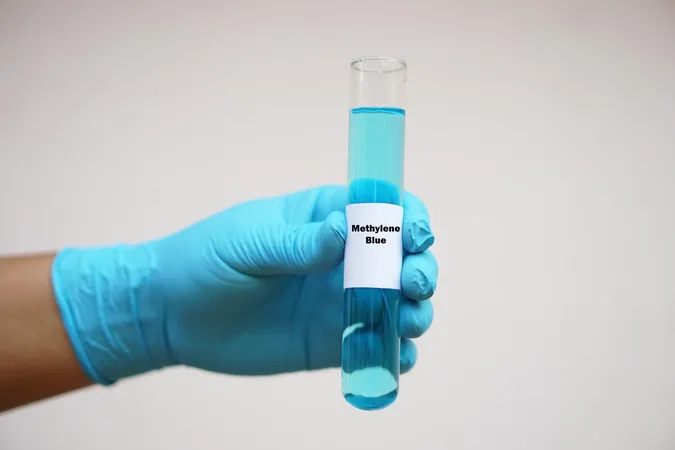
Discover the Game-Changer for Endometriosis: The Low FODMAP Diet!
2025-05-14
Author: Wei Ling
Unlocking Relief for Endometriosis Sufferers
A groundbreaking study has revealed that the Low FODMAP Diet, originally designed for irritable bowel syndrome (IBS), can significantly alleviate gastrointestinal symptoms in women battling endometriosis. Researchers from Monash University found a remarkable 60% of participants reported improvement on this diet compared to only 26% on a control diet aligned with Australian Dietary Guidelines.
Transformative Results: Less Pain and Better Quality of Life
Participants on the Low FODMAP Diet not only reported fewer gastrointestinal issues, but overall symptom severity dropped by an impressive 40%. The study, published in Alimentary Pharmacology and Therapeutics, highlighted improvements in abdominal pain, bloating, and even stool consistency, leading to a better quality of life for those affected.
Dr. Jane Varney, a Senior Research Dietitian at Monash University, emphasized the study’s significance: "For the first time, we have evidence that a specific diet can significantly reduce gastrointestinal symptom severity in women with endometriosis." With over 75% of women with endometriosis experiencing digestive challenges resembling those of IBS, this finding is a beacon of hope.
The Low FODMAP Diet: A Revolutionary Approach
The Low FODMAP Diet, developed in the mid-2000s, has revolutionized the treatment landscape for IBS. Following extensive research and collaboration among dietitians, scientists, and gastroenterologists, Monash University has also launched a FODMAP Diet App and a cookbook to assist those looking to adopt this dietary strategy.
Study Details: What You Need to Know
The study involved 35 women over 18 years old with diagnosed endometriosis who also dealt with significant gastrointestinal symptoms. After a week on their typical diet, participants were assigned to either the Low FODMAP Diet or a control diet for four weeks, followed by a break and then cross-over to the alternate diet. Both diets were nutritionally balanced, differing only in FODMAP content.
A Wake-Up Call for the Medical Community
Associate Professor Rebecca Burgell, senior author and head of the Functional Gut Service at Alfred Health, pointed out a significant gap in existing clinical guidelines regarding gastrointestinal symptoms linked to endometriosis. She noted that most guidelines overlook these symptoms altogether, leaving many women without effective treatment options.
What Is Endometriosis?
Endometriosis affects approximately 1 in 7 women in Australia. This painful condition occurs when tissue similar to the uterine lining grows outside the uterus, often in the pelvis, causing severe discomfort and a host of other symptoms.
As new dietary solutions emerge, the hope for better management of endometriosis symptoms shines brighter than ever!



 Brasil (PT)
Brasil (PT)
 Canada (EN)
Canada (EN)
 Chile (ES)
Chile (ES)
 Česko (CS)
Česko (CS)
 대한민국 (KO)
대한민국 (KO)
 España (ES)
España (ES)
 France (FR)
France (FR)
 Hong Kong (EN)
Hong Kong (EN)
 Italia (IT)
Italia (IT)
 日本 (JA)
日本 (JA)
 Magyarország (HU)
Magyarország (HU)
 Norge (NO)
Norge (NO)
 Polska (PL)
Polska (PL)
 Schweiz (DE)
Schweiz (DE)
 Singapore (EN)
Singapore (EN)
 Sverige (SV)
Sverige (SV)
 Suomi (FI)
Suomi (FI)
 Türkiye (TR)
Türkiye (TR)
 الإمارات العربية المتحدة (AR)
الإمارات العربية المتحدة (AR)